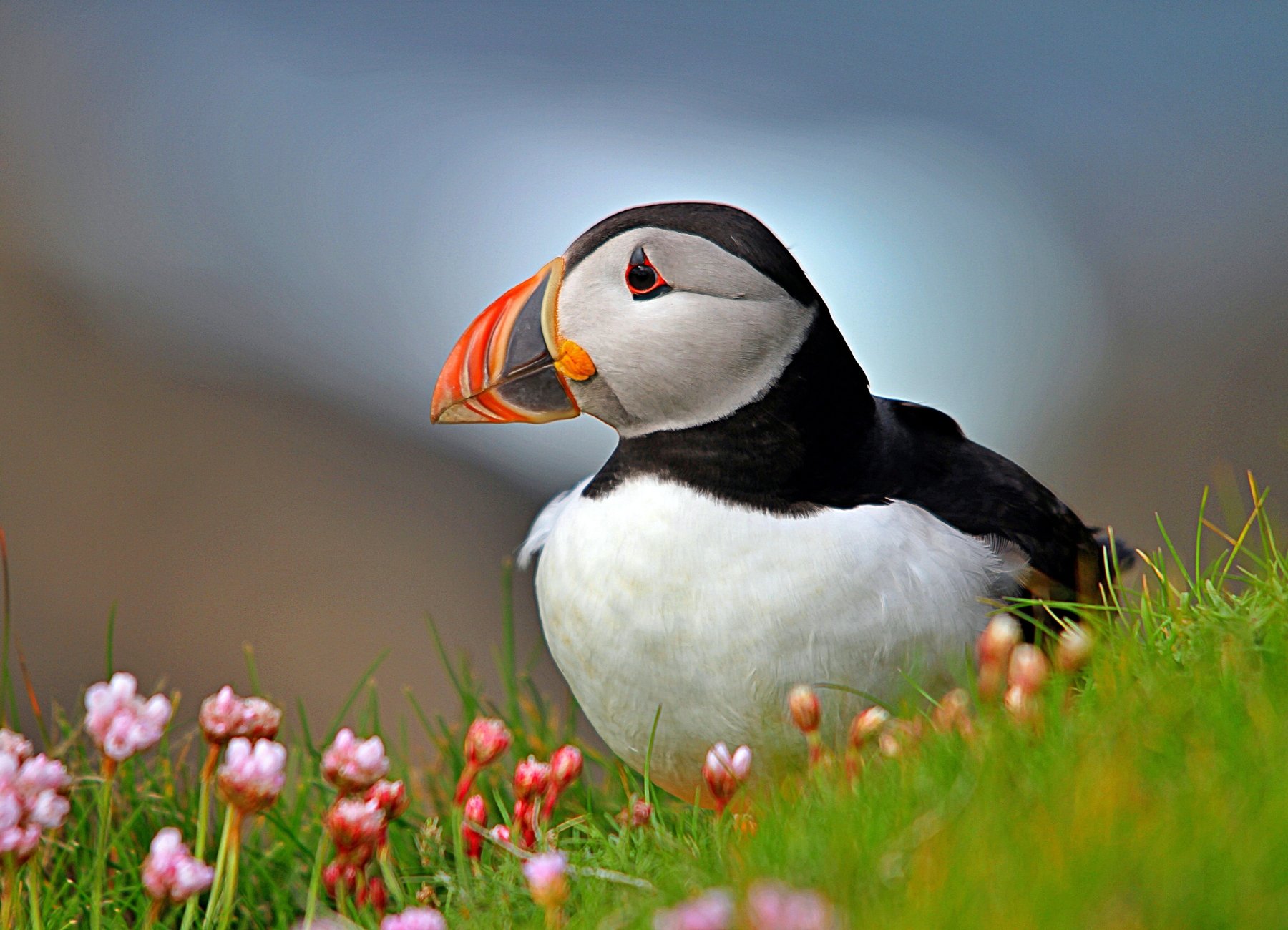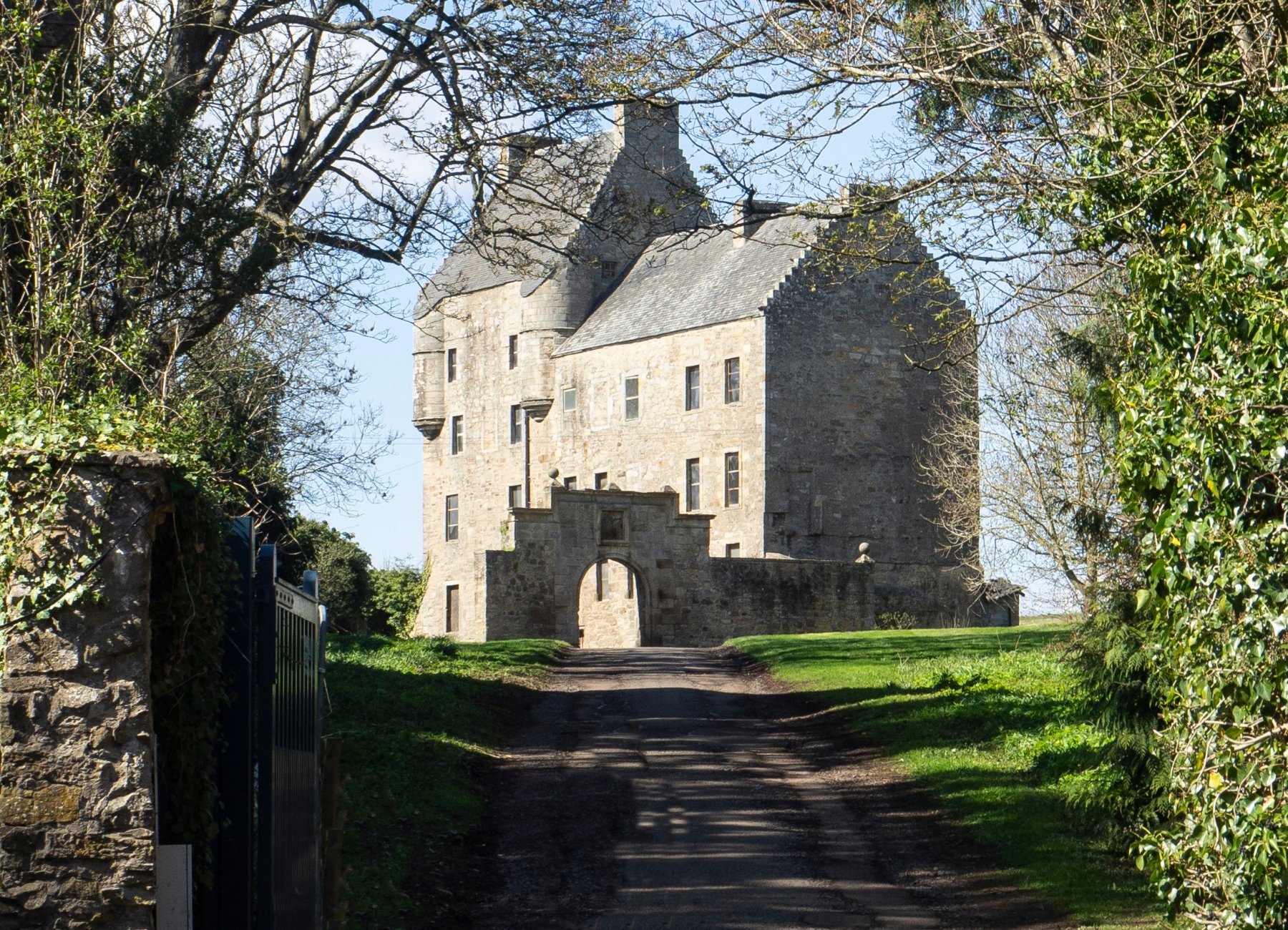A Complete Guide to a Robert Burn’s Night Supper (Dinner)
Derek McCreadie
Head Experience Creator &
Scotland Tour Guide
Share on Facebook, Insta & email
In Scotland, on the 25th of January every year, we celebrate one of Scotland’s most famous poets to have ever lived. If you haven’t guessed who that poet is, it is Sir Walter Scott…
I am of course joking, the poet I’m speaking about is one of my favourites (and probably most Scots would say the same), Robert “Rabbie” Burns.
It’s more commonly known in Scotland as a Burn’s Supper, but what happens on this fascinating evening? All will be revealed down through the paragraphs!
So let’s tak a saunter doon the pages an learn aboot the celebration a Rabbie Burns.
At Scotland’s Wild, we’ve led thousands of trips through Scotland & share stories to bring people to this incredible country!
If you’d like to check-out our selection of tours, from day trips to islands hopping multi-day adventures - click here.
A Complete Guide to a Burn’s Night Supper in Scotland
Who is Robert (Rabbie) Burns?
If you don’t know who Robert Burns is, then where have you been?! Only kidding, quite a lot of folk might not realise that when they’re singing “Auld Langs Syne” at New Years, they are actually singing a Robert Burns song.
Robert Burns is known as Scotland’s Poet, mainly wrote in the Auld Scots language, and was born on 25 January 1759 in a small cottage in Alloway, Ayrshire, on the West Coast of Scotland. He was 1 of 7 children, and worked on the farm with the rest of his family.
His education mainly came from his father whilst being sent to different parishes to learn other subjects such as Latin. When Robert was 15, he began writing some poems, being inspired by Nelly Kilpatrick who helped on the farm during harvest season.
-
My Heart’s in the Highlands
My heart’s in the Highlands, my heart is not here,
My heart’s in the Highlands, a-chasing the deer;
Chasing the wild-deer, and following the roe,
My heart’s in the Highlands, wherever I go.Farewell to the Highlands, farewell to the North,
The birth-place of Valour, the country of Worth;
Whenever I wander, whenever I rove,
The hills of the Highlands forever I’ll loveMy heart’s in the Highlands, my heart is not here,
My heart’s in the Highlands, a-chasing the deer;
Chasing the wild-deer, and following the roe,
My heart’s in the Highlands, wherever I goFarewell to the mountains, high-cover’d with snow,
Farewell to the straths and green valleys below;
Farewell to the forests and wild-hanging woods,
Farewell to the torrents and loud-pouring floodsMy heart’s in the Highlands, my heart is not here,
My heart’s in the Highlands, a-chasing the deer;
Chasing the wild-deer, and following the roe,
My heart’s in the Highlands, wherever I go. -
To a Mouse
Wee, sleekit, cowrin, tim'rous beastie,
O, what a pannic's in thy breastie!
Thou need na start awa sae hasty,
Wi' bickering brattle!
I wad be laith to rin an' chase thee,
Wi' murd'ring pattle!I'm truly sorry man's dominion,
Has broken nature's social union,
An' justifies that ill opinion,
Which makes thee startle
At me, thy poor, earth-born companion,
An' fellow-mortal!I doubt na, whiles, but thou may thieve;
What then? poor beastie, thou maun live!
A daimen icker in a thrave 'S a sma' request;
I'll get a blessin wi' the lave,
An' never miss't!Thy wee bit housie, too, in ruin!
It's silly wa's the win's are strewin!
An' naething, now, to big a new ane,
O' foggage green
An' bleak December's winds ensuin,
Baith snell an' keen!Thou saw the fields laid bare an' waste,
An' weary winter comin fast,
An' cozie here, beneath the blast,
Thou thought to dwell-
Till crash! the cruel coulter past
Out thro' thy cell.Thy wee bit heap o' leaves an' stibble,
Has cost thee mony a weary nibble!
Now thou's turn'd out, for a' thy trouble,
But house or hald,
To thole the winter's sleety dribble,
An' cranreuch cauld!But, Mousie, thou art no thy-lane,
In proving foresight may be vain;
The best-laid schemes o' mice an' men
Gang aft agley,
An' lea'e us nought but grief an' pain,
For promis'd joy!Still thou art blest, compar'd wi' me
The present only toucheth thee:
But, Och! I backward cast my e'e.
On prospects drear!
An' forward, tho' I canna see,
I guess an' fear! -
Little, cunning, cowering, timorous beast,
Oh, what a panic is in your breast!
You need not start away so hasty
With bickering prattle!
I would be loath to run and chase you,
With murdering paddle!I'm truly sorry man's dominion
Has broken Nature's social union,
And justifies that ill opinion Which makes you startle
At me, your poor, earth-born companion
And fellow mortal!I doubt not, sometimes, that you may thieve;
What then? Poor beast, you must live!
An odd ear in twenty-four sheaves
Is a small request;
I will get a blessing with what is left,
And never miss it.Your small house, too, in ruin!
Its feeble walls the winds are scattering!
And nothing now, to build a new one,
Of coarse green foliage!
And bleak December's winds ensuing,
Both bitter and piercing!You saw the fields laid bare and empty,
And weary winter coming fast,
And cozy here, beneath the blast,
You thought to dwell,
Till crash! The cruel coulter passed
Out through your cell.That small heap of leaves and stubble,
Has cost you many a weary nibble!
Now you are turned out, for all your trouble,
Without house or holding,
To endure the winter's sleety dribble,
And hoar-frost cold.But Mouse, you are not alone,
In proving foresight may be vain:
The best-laid schemes of mice and men
Go oft awry,
And leave us nothing but grief and pain,
For promised joy!Still you are blessed, compared with me!
The present only touches you:
But oh! I backward cast my eye, On prospects dreary!
And forward, though I cannot see,
I guess and fear!
Now, going into adulthood, Robert had begun multiple relationships. There’s a saying in Scotland “It’s not hard to be related to Rabbie Burns.” I myself have a distant cousin of Robert on my mother’s side of the family, recently discovered by my Great Uncle over in the USA. It’s safe to say that Robert was a bit of a player back in the day.
He had 12 children (legitimate & illegitimate children) nine of which came from his wife Jean Armour, but only 3 of the 9 survived to adulthood.
His first big publication was the Kilmarnock Volume, which instantly was a success, getting him recognised by the aristocratic community, where he became a guest to many parties. At one such party, he is said to have left a lasting impression on another famous Scottish poet, Sir Walter Scott.
Robert died very young at the age of 37 on 21 July 1796, in his Dumfriesshire farm. He was given the Freedom of the Town of Dumfries posthumously.
There are so many achievements that Robert was accredited with that it’s impossible to name them all. One way we now recognise his work today is to celebrate his poems & songs that bring so many people joy.
What is a Burn’s Night Supper?
What a famous night this is in Scotland! If you ever get the chance to attend a Burn’s Night in Scotland you must go, but not in jeans or a t-shirt, oooh no! But in yer best fitting kilt! (it can also be an informal evening, but where’s the fun in that?!).
Here is a Standing Order of the evening. First the guests are greeted with a Bagpiper, who pipes in the guests to their table. An opening speech, generally done by the host, welcomes everyone to the evening.
Then the Selkirk Grace is said, a kind of thanks before the meal is brought out. Not written by Robert but is associated with him after he apparently read the Galloway Grace at a dinner hosted by Dunbar Douglas, the 4th Earl of Selkirk.
It goes;
“Some hae meat an canna eat,
And some wad eat that want it;
But we hae meat, and we can eat,
And say the Lord be thankit”
The starter is served and is a traditional Scottish soup, my personal favourite being Cullen Skink (a kind of fish chowder) with the smoked haddock and boiled potatoes in a creamy broth.
For the main course, it is the most delicious dish on the planet! Haggis, Neeps, & Tatties (don’t ask your butcher what’s in haggis, just eat it and enjoy). Tatties are mashed potato and Neeps are mashed turnips.
I should also mention that the whisky is in full flow throughout the evening, naturally of course.
The Address to a Haggis
The Haggis is Piped into the main table where the host of the evening (or a special guest) will now perform the “Address to a Haggis”. During this poem by Robert, the speaker draws a knife at the line “His knife see rustic labour dicht” and begins to cut the haggis at the line “An’ cut you up wi’ ready slicht”.
-
Fair fa' your honest, sonsie face,
Great chieftain o' the puddin-race!
Aboon them a' ye tak your place,
Painch, tripe, or thairm:
Weel are ye wordy o' a grace
As lang's my airm.
The groaning trencher there ye fill,
Your hurdies like a distant hill,
Your pin wad help to mend a mill
In time o' need,
While thro' your pores the dews distil
Like amber bead.
His knife see rustic Labour dicht,
An' cut you up wi' ready slicht,
Trenching your gushing entrails bricht,
Like ony ditch;
And then, O what a glorious sicht,
Warm-reekin, rich!
Then, horn for horn, they stretch an' strive:
Deil tak the hindmaist! on they drive,
Till a' their weel-swall'd kytes belyve,
Are bent like drums;
Then auld Guidman, maist like to rive,
"Bethankit" hums.
Is there that o're his French ragout
Or olio that wad staw a sow,
Or fricassee wad mak her spew
Wi' perfect scunner,
Looks down wi' sneering, scornfu' view
On sic a dinner?
Poor devil! see him ower his trash,
As feckless as a wither'd rash,
His spindle shank, a guid whip-lash,
His nieve a nit;
Thro' bloody flood or field to dash,
O how unfit!
But mark the Rustic, haggis fed,
The trembling earth resounds his tread.
Clap in his wallie nieve a blade,
He'll mak it whistle;
An' legs an' arms, an' heads will sned,
Like taps o' thristle.
Ye Pow'rs wha mak mankind your care,
And dish them out their bill o' fare,
Auld Scotland wants nae skinkin ware
That jaups in luggies;
But, if ye wish her gratefu' prayer,
Gie her a haggis!
-
Nice seeing your honest, chubby face,
Great chieftain of the sausage race!
Above them all you take your place,
Belly, tripe, or links:
Well are you worthy of a grace
As long as my arm.
The groaning platter there you fill,
Your buttocks like a distant hill,
Your pin would help to mend a mill
In time of need,
While through your pores the dews distill
Like amber bead.
His knife see rustic Labour sharpen,
And cut you up with practiced skill,
Trenching your gushing entrails bright,
Like any ditch;
And then, Oh what a glorious sight,
Warm-steaming, rich!
Then, spoon for spoon, they stretch and strive:
Devil take the hindmost, on they drive,
'Til all their well-swollen bellies soon
Are tight as drums;
Then old Master, most likely to burst,
'Thanks Be' hums.
Is there one, that over his French ragout,
Or olio that would give pause to a sow,
Or fricassee that would make her spew
With perfect loathing,
Looks down with sneering, scornful view
On such a dinner?
Poor devil! See him over his trash,
As feeble as a withered rush,
His spindly leg a good whip-lash,
His fist a nit:
Through bloody flood or field to dash,
Oh how unfit!
But mark the Rustic, haggis-fed,
The trembling earth resounds his tread,
Clap in his sturdy fist a blade,
He'll make it whistle;
And legs and arms, and heads will cut,
Like tops of thistle.
You Pow'rs, that make mankind your care,
And dish them out their bill of fare,
Old Scotland wants no watery ware
That slops in bowls:
But, if You wish her grateful prayer,
Give her a Haggis!
After the Address to a Haggis, the dish is then shared out to everyone attending for their main course. More recently, it has been accompanied by a whisky sauce, which if you’ve never had, trust me, you’ll want to try it.
It is bloody delicious!!!
Immortal Memory of Robert Burns
Towards the end of the evening, the host or a guest of the event will begin the Immortal Memory of Robert Burns. This generally involves sharing some aspect of Robert’s life in a speech or reciting a song or poem by Burns.
After that, begins the Address to the Lassies. It started as a short speech as a thanks to the woman who’d prepared the meal. Nowadays, it’s more of a humorous speech covering the male speaker's view of a woman, and shouldn’t be offensive, because you'll have hundreds of women charging at you over the tables.
In the Reply to the Laddies a woman guest speaker will then conduct a speech similar to the previous as a reply to some of the gentleman’s comments, again it’s mainly light-hearted humour.
These replies vary at every Burn’s night event, it all comes down to the person giving the address and what they decide to mention. Normally it will involve some of the poems written by the Silver Tongued Bard (Robert) who certainly knew how to woo the Lassies.
Thank You for Reading!
Now it’s your turn to share any experiences you’ve had at a Burn’s Night, or tell us your favourite poem or song by the genius that was Rabbie Burns.
I’ll start by saying my favourite poem has to be My Heart’s in the Highlands. John’s favourite poem by the legendary Bard is To A Mouse.





















